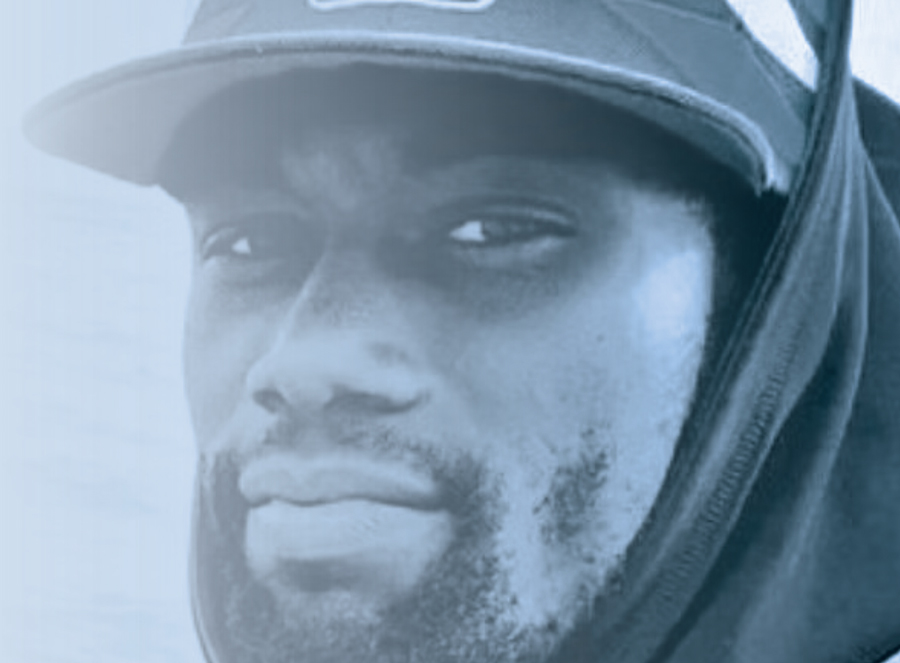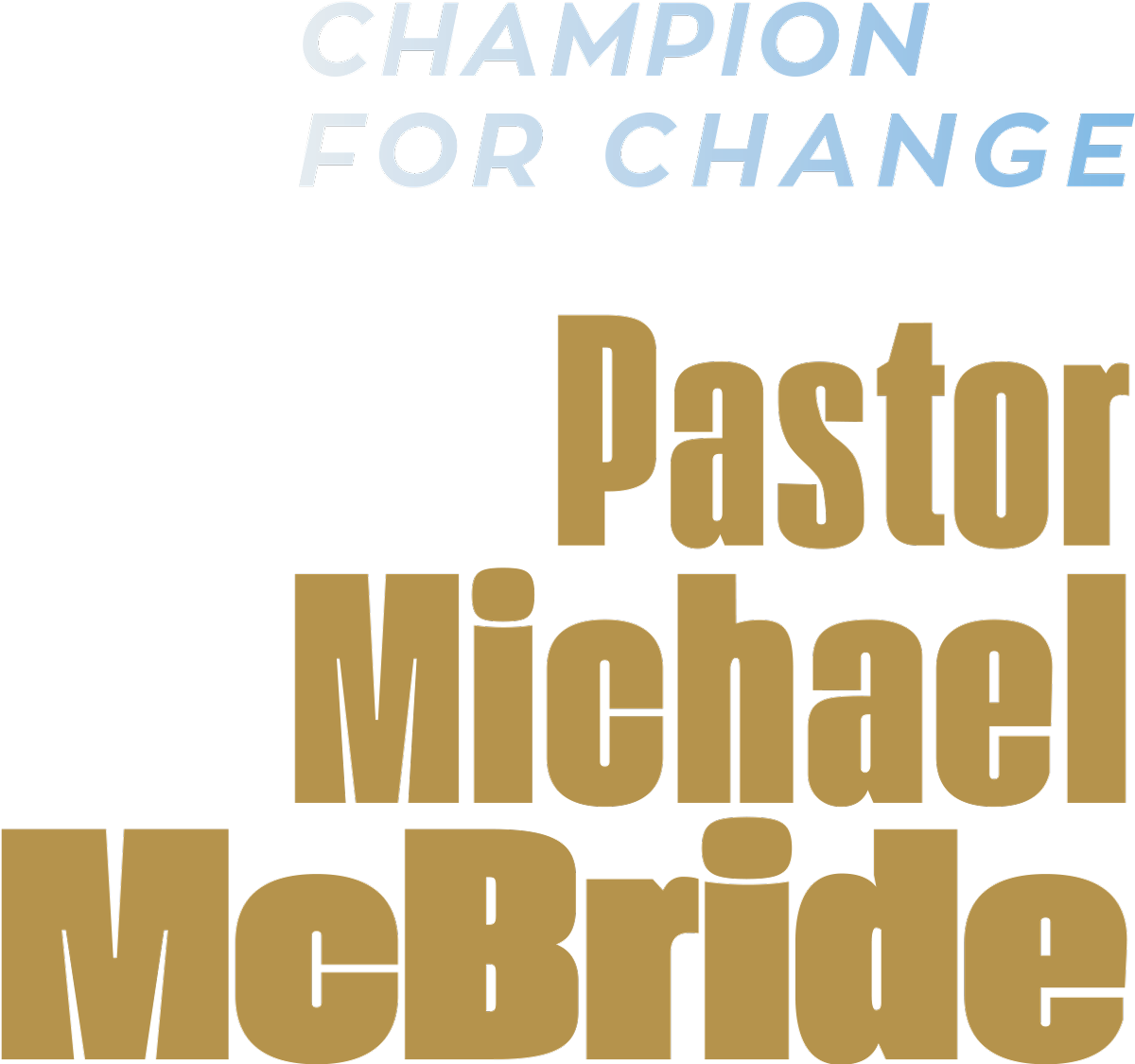


A San Francisco Bay area native, McBride allied with other organizations to help address gun violence and homicide rates in Oakland, California. This alliance, while realizing success, also gained two insights the hard way. First, effective strategy requires community policing that reflects input and buy-in from key community members. And, second, effective policy and programming must be narrowly tailored to the segment most likely to be involved in gun violence in the first place.
Errors notwithstanding, Oakland, experienced a substantial reduction in gun violence and homicides. In 2012 the city held the regrettable distinction as one of the most dangerous cities in the United States, seeing as many as 115 homicides, in one month. However, according to a document produced by the Giffords Law Center, “A Case Study in Hope: Lessons from Oakland’s Remarkable Reduction in Gun Violence,” in just one year, this newest strategic approach proved itself. Homicide levels were down by 44%.
McBride is convinced his background as a fourth generation Pentecostal believer, steeped in deep conviction and his father’s Southern roots drives his personal, Biblical approach. Further, McBride moves in the consciousness borne of that very community—where he played basketball in the most violent of public housing spaces, or gained a sense of social advocacy from his aunt, a former Black Panther. And, unfortunately, he bears the lingering trauma of having been roughed up, abused and sexually violated by police in 1999. He knows the dynamic of the community.
In 2022, CNN dubbed McBride a “Champion for Change.” With a Master’s of Divinity from Duke Divinity School, he still shows up in the neighborhood in his starched white preacher’s collar, and sneaks—for everyday relationship moments, and before anything ever jumps off, or the news cameras ever appear. Because of that, the young people tell him he has “‘hood cred.”
We interviewed McBride late last year for Message. When you want peace in your community, here are his proven ways to get it in his own words.
I go to baseball games, football games, basketball games, and I’ve known people who, when they were 14, they would attribute that I saved their life. And I did not push them down from a bullet, but I was present in their life. Every day, over the course of three to four years, in a very consistent, righteous, responsible way.
I showed up to court for so many kids and I pleaded for mercy from the judge . . . just showing up for them without judgment, with wisdom. They want to know what you think of their behavior, even if they don’t listen to it.
I do think it’s very simple, you know, feeding the hungry, clothing the naked, sheltering the unhoused. Imagine doing that with children, young people in your communities and neighborhood?
The young people who are responding with that level of violence to acts of goodwill, I found it’s usually a test. It’s their defense mechanism. Right—like I call it the Godzilla breath, you know? It’s their attempt to shoo you off before you hurt them.
Some of their trauma is being transferred to you. So we have to appreciate that we have to outlast the kind of angst and defense mechanisms of our young people.
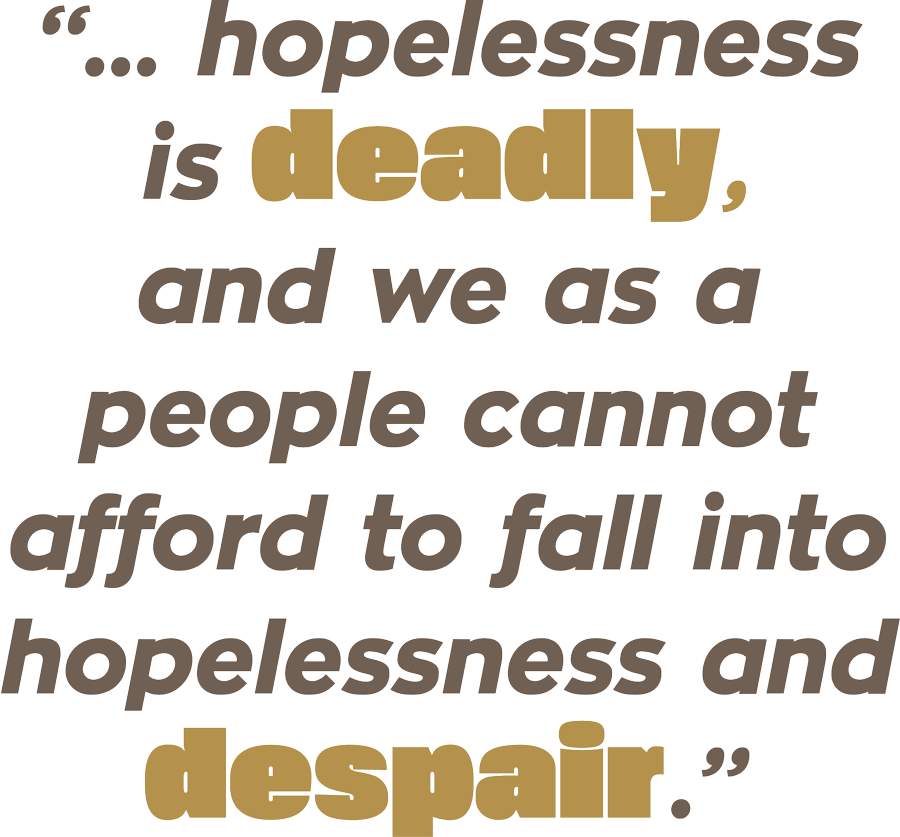
If you if you have been the victim of gun violence, you are more likely to go violate existing social networks. There are certain social networks in cities that have much more proximity to violence. And these individuals are not unknown in a social network. So, if my cousin has been shot, then I am likely to be pulled into the cycle that produced his shooting.
And so, part of what we try to look at is, can we identify individuals who have been victimized by gun violence, who have been arrested and charged with gun crime as early as we can, and build interventions around them in their families, rather than starting from hir[ing] as many police as possible so we can try to catch these folks after they do a shooting?
Now, if it’s true that it’s less than 1%—half of 1%—at most times of your city’s population commit 60% of the gun-related shootings and homicides, then what we know then is that it’s always a super small number of individuals.
So our task is to use data, relationships and best practices to forge a way forward that does not depend on the violence of the state—the sanctioned violence of the state ( policing) to do what it’s not meant to do.
We have seen a spike in domestic violence, intimate partner violence.Black women, unfortunately, are becoming more and more victims of violence in our communities. There is no number or amount of police that can stop intimate partner encounter, right? They’re [the police are] called after the fact, if they’re called at all. And, so is hiring more police going to help decrease the intimate partner violence?
Well, why then, does every conversation about violence start with hiring more police?
So if we’re talking about metrics and data, and things, we have to discipline ourselves as a people, as a church, as an institution, to require our public safety, our elected officials to let data, relationships, and best practices be the [bedrock] for our responses to the worst conditions of our community.
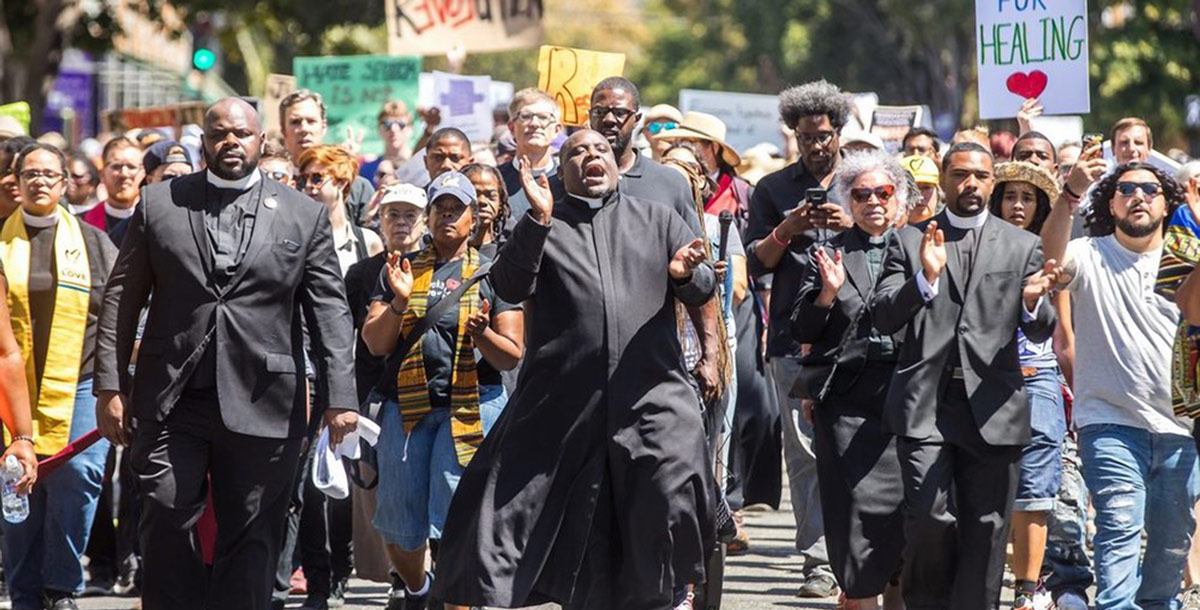
Scripture says that we may be troubled on every side, but we are not distressed. We may be perplexed but we’re not giving in to despair. You may be persecuted but we are not forsaken. You may be cast down but we must not be destroyed [2 Corinthians 4:7-9]. And so, there is this sense that our experience is frequently living on the precipice of being troubled but not in distress.
There will be seasons of our life, where we will live on the razor’s edge of that reality. But hopefulness, through the power of God’s Spirit, is a force of life. It is not a dream. It’s not an opiate for the masses. Hope, love—these are forces of God. It is the spiritual force of the breath, the activity of God.
Never give up. The love, the joy, the sense of peace for life and living in godliness in ministry, and discipleship—don’t give it up just because we may be troubled on every side, [or we] may be perplexed or we may be persecuted.
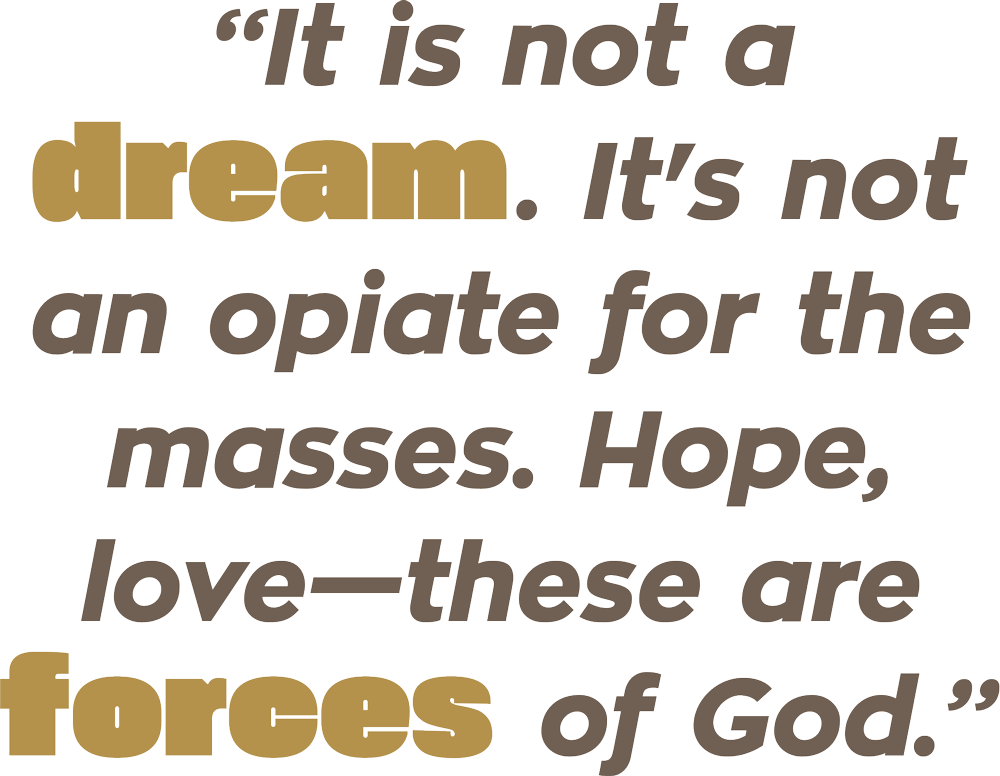
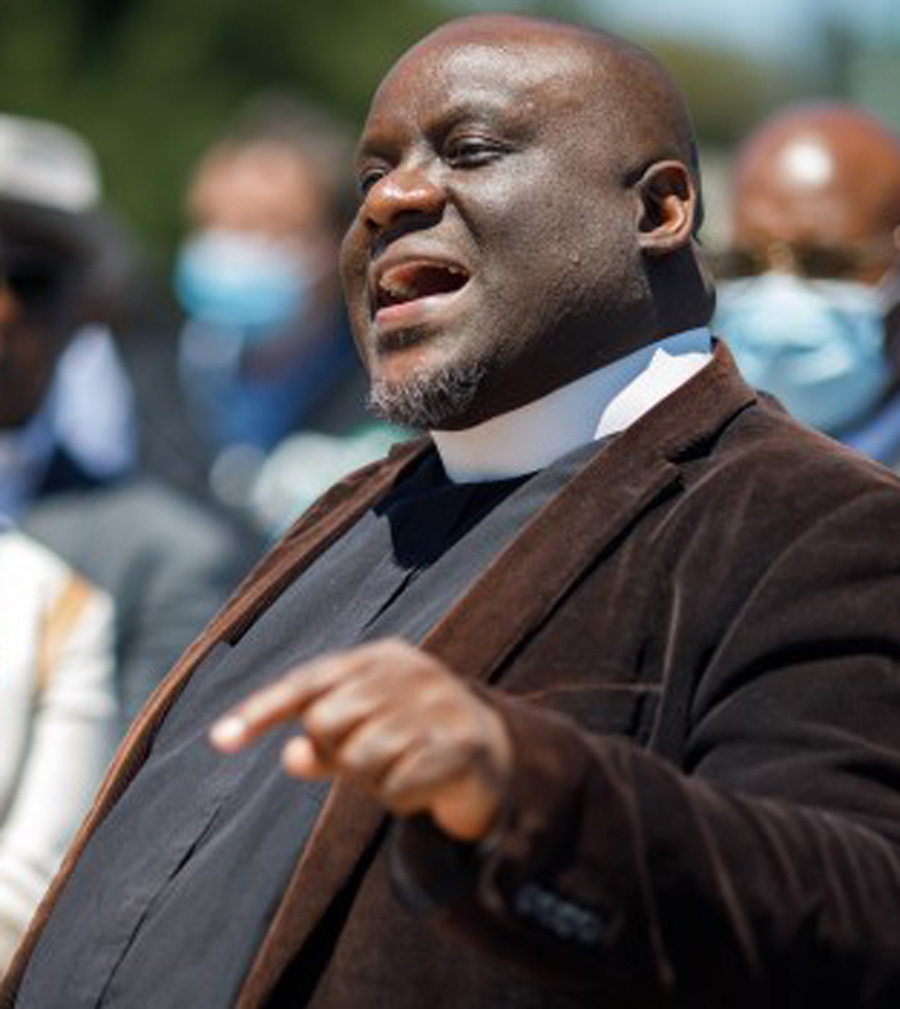
And so it is this sense that the work of God in the world transforms the world into God’s content. Or the neighborhood or a church or any community in the community. That neighborhood church is far from God’s vision. Our words should be able to add up to the peace of that space and in that peace, calm so we find our needs and is not linear.
Sometimes it’s very zigzag. You know, sometimes it touches your family while you’re helping others. Sometimes someone else has to help your child while you save someone else’s child, and then goes back again. To this idea that we are a village and not a nuclear family. So I hope that the readers can have a stimulated imagination on what it means for us to be people who don’t lose hope, and don’t forsake our faithful love and joy for our people. You keep leaning into keeping finding the spiritual surprises and heal us.

